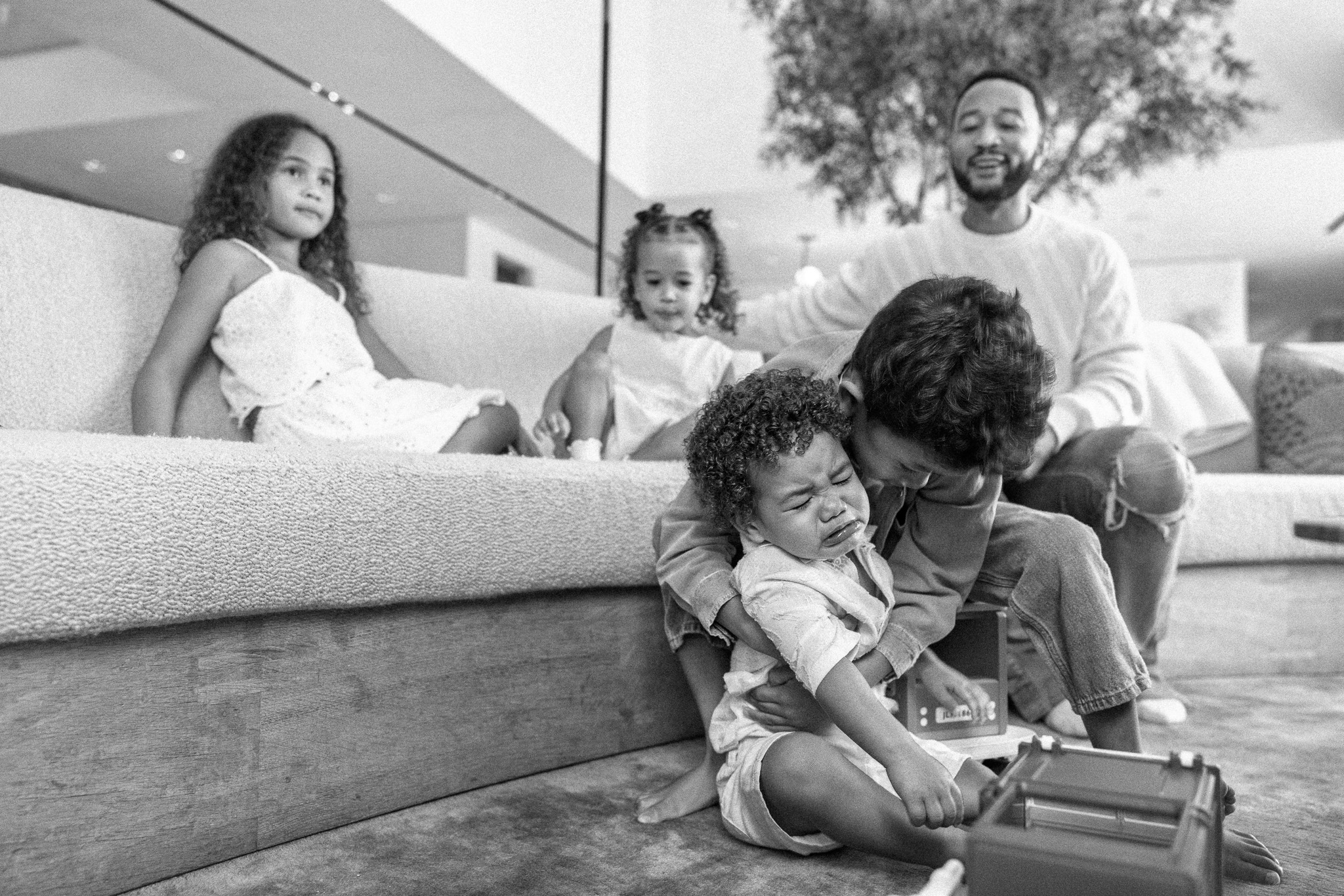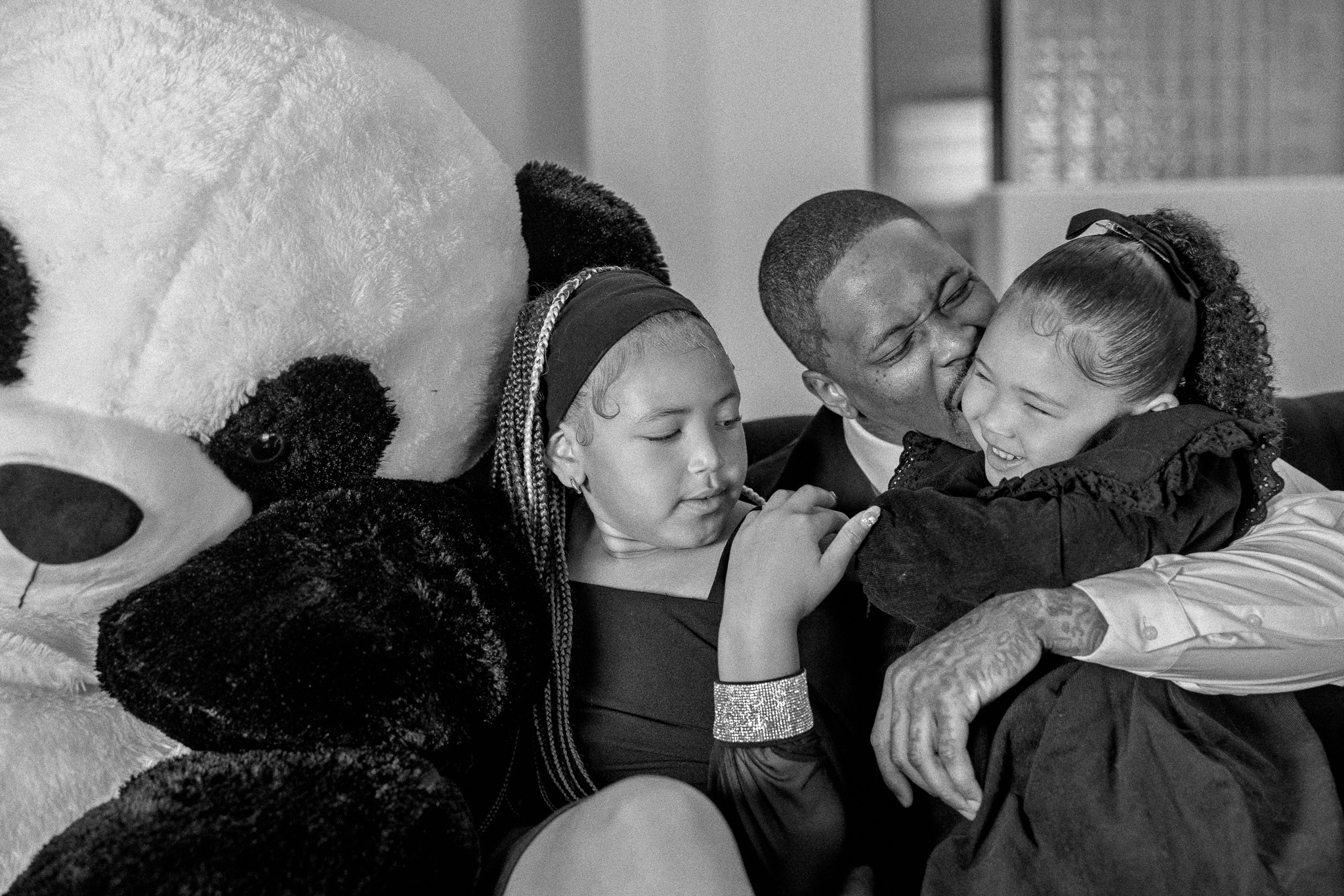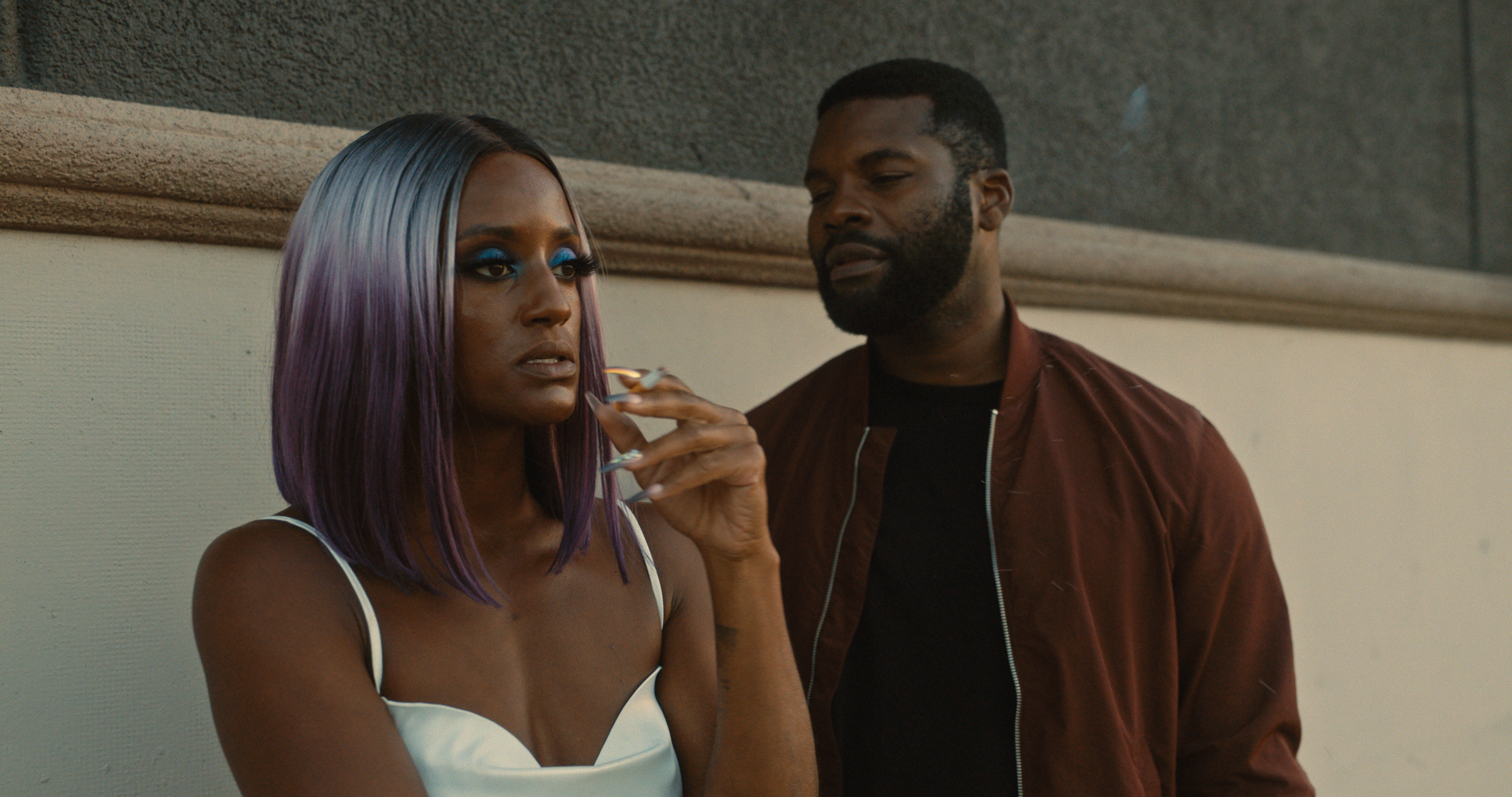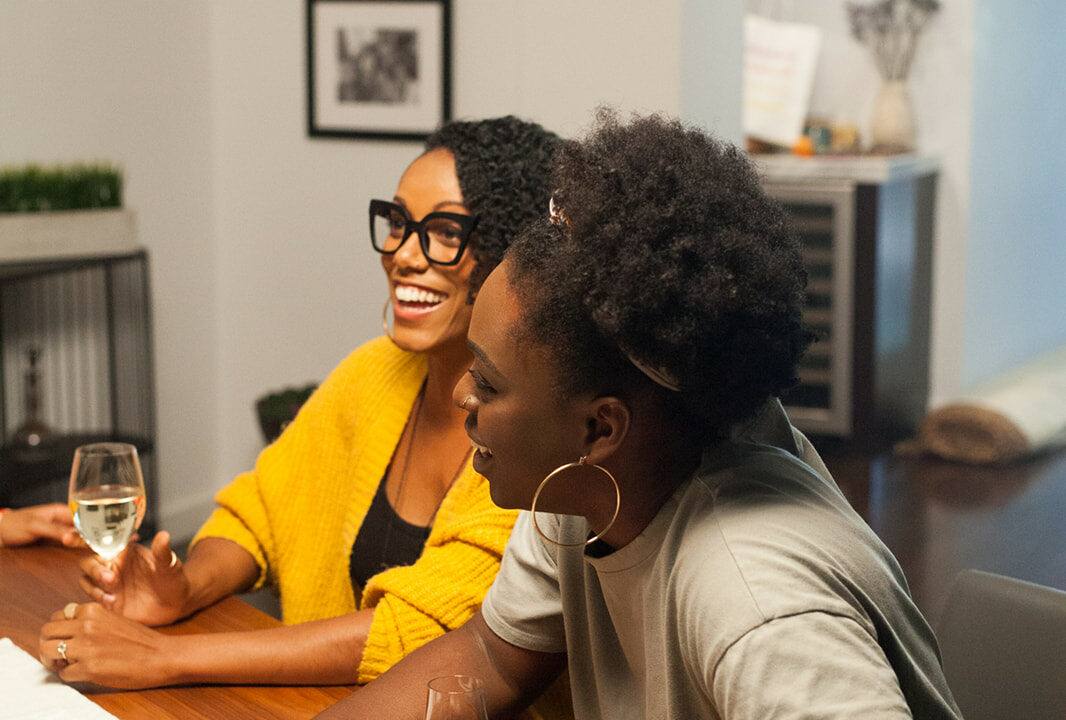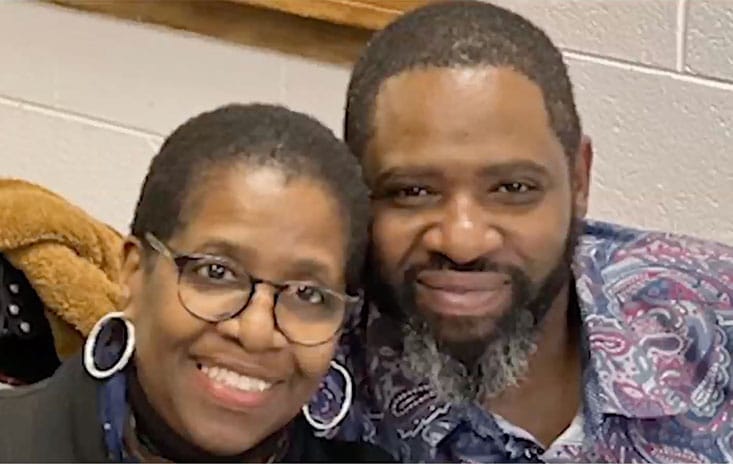
Featured-Image-Adoption
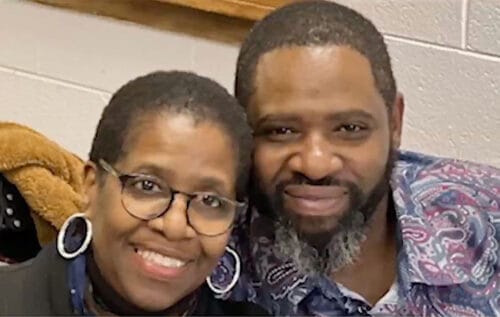 Vamarr Hunter always suspected his story was unique, but it wasn’t until age 35 that he discovered he was adopted. Through the help of a genealogist and DNA testing, Vamarr found his biological mother, Lenore Lindsey, who just so happened to be the owner of his favorite bakery, Give Me Some Sugah, in Chicago. Lenore put Vamarr up for adoption in 1954, when she was 17.
Vamarr Hunter always suspected his story was unique, but it wasn’t until age 35 that he discovered he was adopted. Through the help of a genealogist and DNA testing, Vamarr found his biological mother, Lenore Lindsey, who just so happened to be the owner of his favorite bakery, Give Me Some Sugah, in Chicago. Lenore put Vamarr up for adoption in 1954, when she was 17.
“I left the adoption open, and I said, you know, if he really wants to find me, then he’ll be able to find me. But otherwise, his life must be great. I wouldn’t interfere in that life,” Lenore told NBC Chicago.
Mother and son reunited after decades apart and Vamarr now helps Lenore run the South Shore Chicago bakery.
“Man, I love, love my mom. I love having a mother. It was a lot of rough Mothers’ Days’,” Vamarr said, holding back tears.
View this post on Instagram
“I love my son, and having him now all these later years later, that’s just God,” Lenore added as she too held back tears. “God is love. I am so incredibly full and so incredibly grateful to the Father for this gift. This is a gift, and there is no way this happened without God.”
For Black adoptees, the journey to reconnect with biological family members is often filled with hope, nerves, and a deep yearning for answers. Vamarr and Lenore’s sweet reunion is a testament to the power of utilizing adoption resources. If you’re an adoptee on a similar journey, here are some essential tools and tips to help you take the first steps toward reconnecting with your biological family:

Courtesy of Pexels.com
1. DNA Testing Services
DNA testing services like AncestryDNA, 23andMe, and MyHeritage DNA have revolutionized family searches for adoptees. These platforms analyze your genetic makeup and compare it to others in their database, providing potential matches with relatives who’ve also taken the test. For many adoptees, these matches can range from distant cousins to immediate family members.
2. Social Media and Online Groups
Social media has become a powerful tool for adoptees seeking to connect with their biological families. Platforms like Facebook have countless groups dedicated to adoption reunions, where members share tips, post about their searches, and even amplify each other’s stories. Similarly, forums on Reddit, such as r/AdoptionSearchAngels, provide advice and emotional support.
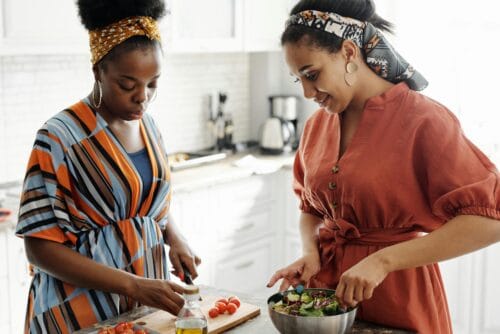
Courtesy of Pexels.com
3. State-Specific Resources
Each state has unique policies regarding access to adoption records. Start by contacting the Department of Health or the Bureau of Vital Statistics in the state where you were adopted. Some states offer mutual consent registries where adoptees and biological parents can connect if both parties opt in.
4. Nonprofit Organizations
There are several nonprofits dedicated to supporting adoptees in their search journeys. Organizations like Adoptees Connect focus on fostering community, providing emotional support, and creating spaces where adoptees can share their experiences. Others, such as The National Council for Adoption, provide comprehensive resources, including guidance on navigating the complexities of adoption records and search processes.
Related Articles:
My Parenting Quest to Heal My Sons’ Emotional Wounds as a Single Adoptive Dad of Two
My Journey as a Foster Parent:‘No Child Should Grow up Believing They Are Not Loved’
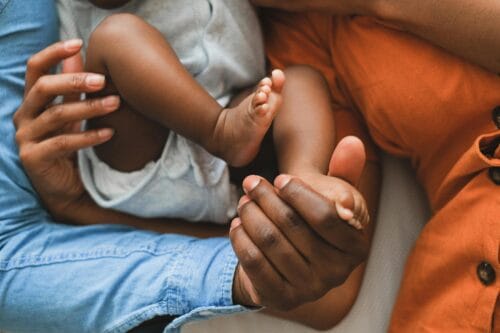
Courtesy of Pexels.com
5. Professional Search Assistance
If you’re unsure where to begin or find the process overwhelming, consider hiring a professional genealogist or search angel. These individuals specialize in helping people track down relatives, often using a mix of public records, DNA results, and investigative techniques. Vamarr utilized this option to help him find his biological mother, Lenore.
6. Adoption Agency Archives
If you know the agency involved in your adoption, contact them to see if they maintain archives or offer reunion services. Many agencies keep archives of adoption records and may offer post-adoption services to help adoptees and biological parents reconnect. Be aware, though, that access to these records can come with fees and restrictions. Some agencies also provide counseling services for both parties, ensuring that the reunion process is handled with care.
7. Community Support
Reuniting with biological family is a deeply emotional experience, as Vamarr and Lenore discovered. Seeking support from a counselor or therapist who specializes in adoption-related issues can help you process these emotions and prepare for the dynamics of reconnecting with family.
Related Articles
John Legend shows the beauty of Black fatherhood in this Father Noir feature—love, presence, and parenting four kids with Chrissy Teigen.
Rapper YG is an example of Black fatherhood, raising daughters Harmony and Vibe and breaking generational cycles, as shown in this powerful Father Noir feature.
Qasim Basir’s To Live and Die and Live is not a film that offers easy answers.
Featured Articles
The vision for our engagement shoot was to celebrate ourselves as a Young Power Couple with an upcoming wedding, celebrating our five year anniversary - glammed up and taking over New York.
When Elitia and Cullen Mattox found each other, they decided that they wanted their new relationship together, their union, to be healthier and different.
Let’s take a trip down memory lane and revisit 10 times Michelle Obama gave us a masterclass in love.
Meagan Good and DeVon Franklin’s new relationships are a testament to healing, growth, and the belief that love can find you again when you least expect it.
Celebrate their marriage and partnership with the release of the documentary “Time II: Unfinished Business”
Yes, I wanted my mom to still love me, but I needed her to love me. I wanted to know that by opening up about this part of my life she could actually love me more fully.

